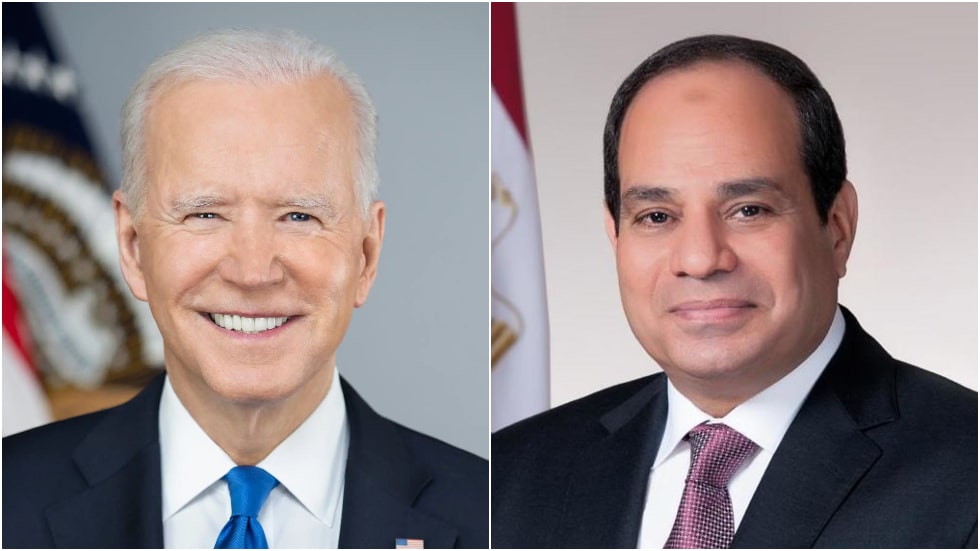The US weapons sector had a good day on Thursday, with Senator Rand Paul’s effort to block a $2 billion weapons sale to Egypt rejected in the upper chamber. President Joe Biden, meanwhile, vowed to grant Colombia a “non-NATO major ally designation” and made good on promises to hand Qatar the same status, setting the stage for future arms deals.
Plane Sale Takes Off
Senator Paul’s bid to scrap the multi-billion dollar sale to Egypt was roundly opposed by fellow lawmakers, with his resolution voted down 81-18 on Thursday. Announced in January, the arms deal in question involves 12 C-130J Super Hercules military transport planes and related gear, though a separate sale approved the same day will also see $355 million in radar systems transferred to Cairo.
Enjoying support from leaders in both parties, the aircraft sale is moving ahead despite a decision earlier this year by the Biden administration to withhold $130 million in aid due to Egypt’s poor human rights record under the Abdel Fattah al-Sisi regime. The latest arms deal was greenlit by the State Department just days prior.
Senator Bob Menendez, a New Jersey Democrat, has defended the deal on the grounds that it will supply only non-lethal planes. However, while the Lockheed Martian-made Hercules craft are not equipped to drop bombs, they can be used to move Egyptian troops and lethal military gear that have been unleashed on civilian protesters in the past.
Donald Trump’s “favorite dictator,” al-Sisi has committed a long line of abuses since taking power in a military coup in 2014. He was also directly implicated in the 2013 Rabaa massacre, in which police and soldiers under al-Sisi’s command mowed down more than 1,000 protesters. He has since imprisoned his political opposition, including the democratically elected President Mohamed Morsi, who died of a purported heart attack while still in custody.
NATO’s New Friends
As Paul’s resolution was clobbered in the Senate on Thursday, President Biden was busy advancing Washington’s strategic partnerships with repressive foreign states, expanding the ever-growing list of “major non-NATO allies” – nations which do not formally belong to the bloc but often receive preferential treatment in the military and financial spheres.
Following a call with Colombian leader Ivan Duque, Biden declared that the South American country would soon receive the ‘major ally’ designation, citing Bogota’s increasingly close ties with the US over the decades.
“The United States intends to designate Colombia as a Major Non-NATO Ally in recognition of our uniquely close cooperation in the hemisphere, Colombia’s significant contributions as a NATO Global Partner [and] its commitment to NATO’s mission to promote democratic values,” Biden said in a joint statement with his Colombian counterpart.
The president also made sure to note Colombia’s “rejection of Russia’s unprovoked and unjustifiable aggression against Ukraine” while touting the country’s supposed devotion to the “defense of human rights and fundamental freedoms.”
The Biden-Duque call came as the administration engages in its most intense dialog with the Venezuelan government in years after Caracas released two American prisoners this week, clearing the way for future dialogue. Colombia, however, has played a key role in US efforts to destabilize Venezuela and even overthrow President Nicolas Maduro, with protest convoys and other opposition activities organized in the neighboring state, as well as at least one alleged assassination plot.
Much like Venezuela, Colombia has a dark human rights record, with extensive documented repression against indigenous people, including “killings, enforced disappearances and kidnappings,” according to Amnesty International. The government and security forces have also faced charges of assassinations of demilitarized members of the FARC rebel group, as well as killing scores of protesters last year.
On the other side of the planet, Qatar’s major ally status also formally took effect on Thursday, after Biden announced the move in late January. The designation will grant Doha more access to American weapons, despite the country’s highly questionable rights record, which even the US State Department has condemned. A 2019 human rights review, for example, concluded that Qatar was responsible for a range of abuses:
“Significant human rights issues included: criminalization of libel; restrictions on peaceful assembly and freedom of association, including prohibitions on political parties and labor unions; restrictions on the freedom of movement for migrant workers’ travel abroad; refusal to grant asylum despite risk of arrest and torture; limits on the ability of citizens to choose their government in free and fair elections; criminalization of consensual same-sex sexual activity; and reports of forced labor.”
The arms deal and new alliances each come as the White House continues a campaign to make Russia an international pariah over its invasion of Ukraine, in which it has repeatedly denounced Moscow for aggression and even war crimes. While the Russian attack will likely result in thousands of civilian casualties and inflame a serious refugee crisis in Eastern Europe, Biden’s continued ties with other authoritarian states presents a major credibility problem for Washington, suggesting its oft-professed commitment to human rights is selective at best.





























